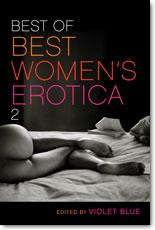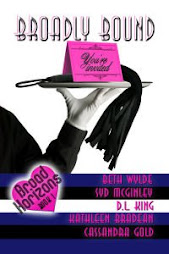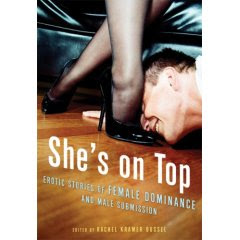Normally, I plow through books in a matter of hours. I absorb story and language quickly. I've always been that way. When Mom felt the need to impress her fellow PhD candidates, she'd hand me a novel, flip to a random page, put her finger on the stopwatch and shout Go! When I finished the chapter, she'd have someone calculate the number of words, divide it by the time, and then wait for them to be amazed by my words per minute rate. Of course, they felt any trained monkey could scan and flip pages, so then I'd have to tapdance through the grand finale as they questioned me about what I'd read. This led to a short stint as the psychology department's favorite lab rat - the Girl Wonder, a first grader who read at college level. That was back in the days where it was still permissible for the head of the department to pat me on the head and lament to my mother, "Pity she's a girl. Such a waste of intellegence." BTW - the school was Oklahoma State University. The year was 1971. I wish I remembered his name, because I'd print it here. Why protect that misogynistic ass? Even back then, I could have told him that I wasn't really a girl, but at that moment it felt like a matter of principal to pass as one, so I didn't correct him. (Mom, on the other hand, ripped him a new one. Despite their religious conservatism, Mom and Dad have always been ardent feminists.)
In contrast to my usual speed reading style, I've been reading Nobody Passes: Rejecting the Rules of Gender and Conformity, edited by Mattilda, Seal Press, slowly, absorbing each essay, and setting aside time to think about the ideas. This is my highest praise for any book - it makes me think.
Some essays stand out more than others, not because they are better, but because they have deeper personal resonance for me. And Then You Cut Your Hair made me nod a few times, and grin. This essay hit right on the issues of hair-length conformity and gender roles. My hair is long, but I hate the message it seems to send out. The message people should get from my hair is that I can't be bothered to get it cut. Simple as that. It does not define me. My hair is NOT political, damn it, just neglected. Once upon a time, I resorted to cropping it very short to fit better with how I identify, but then I got pissed off that other people got to determine my validity with such a stupid external measure, and then time slipped past, and the next thing I knew, it was past my shoulders again. It's reassuring to know that other people experienced this weird hair/identity/conformity issue, and how the length can make a person visible in one community but invisible in another. The rest of the essay is about race. Being white, I will never have a good point of reference for racial issues from the POV of a person of a different race, but it's interesting reading.
Surface Tensions by Jen Cross is another essay that stays with me. As I mentioned after her reading at Skylight Books, my jaw dropped when she spoke of wanting to cut away the feminine parts of her body. She had different reasons than I did - I was never sexually abused - but I was comforted by the horrible thought being spoken aloud. I'd written about it in a novel I just finished, but was a bit uneasy about how a publisher would react to such a frank admission of body loathing and the desire to self-mutilate - no, not mutilate, reform and rebirth, correct and mold in my own image. There's power in terrible words. If Jen isn't afraid to use them, I shouldn't be either.
Not Quite Queer by Benjamin Shepard asks, "Is it possible to be straight and queer? " Persephone by Helen Boyd asks if it's possible to have an identity that isn't in relation to anohter person's identity, and if it's possible to be queer and still have an heteronormative imprint (she calls it a tattoo) on your life. Both of these address the end of an era that may have never been, that mythological time when queer culture was welcoming and encompassing of everyone who felt like Other. The boundaries feel set now, like fortress walls rather than open arms. As usual, I'm on the outside, wondering if I'll ever feel I belong anywhere, and sort of resigning myself to the idea that I won't. I have a feeling that Benjamin and Helen would empathize.
There are so many excellent essays in this anthology. Dean Spade's Undermining Gender Regulation is an eye-opening reminder of the way the government punishes people for being Other. Passing Last Summer and The End of Genderqueer were worth a second reading. Lack of Close Friends of Confidants by Jennifer Blowdryer was well received at the reading I went to.
Overall, this is a persuasive text for anti-assimilation. Little here would excite the politically connected gay groups. This is not media friendly, photo-op, soundbite life. These are unique voices. A strongly recommended read.
Friday, April 06, 2007
Subscribe to:
Post Comments (Atom)















.jpg)











No comments:
Post a Comment